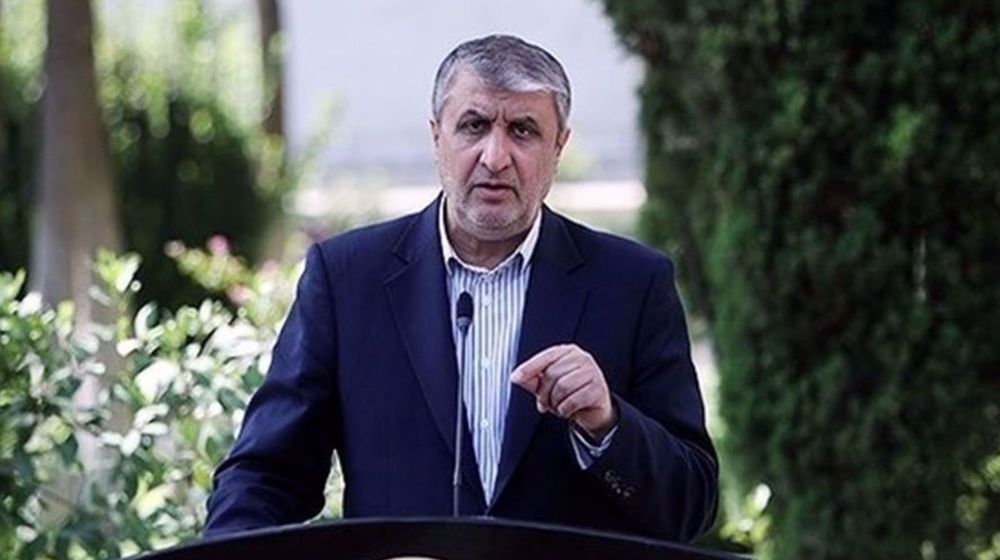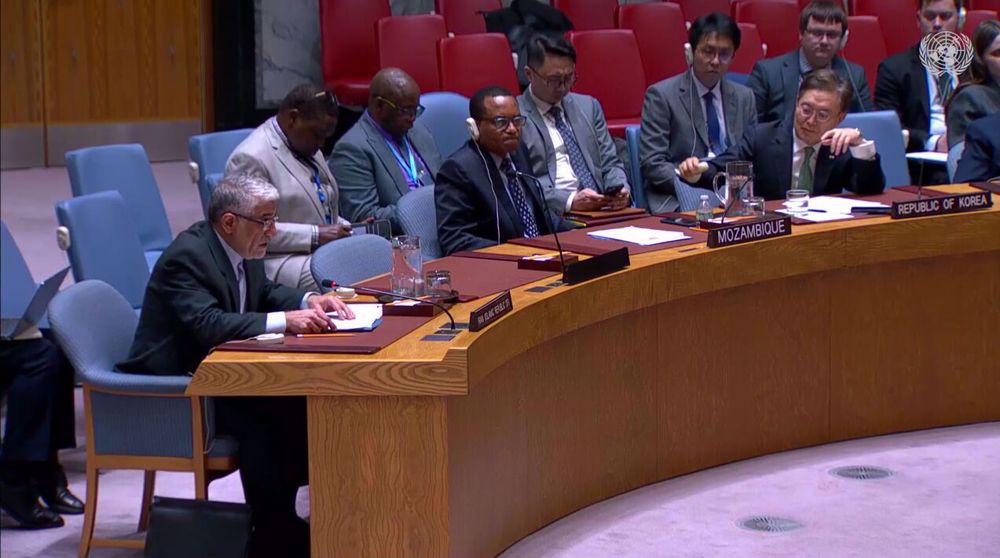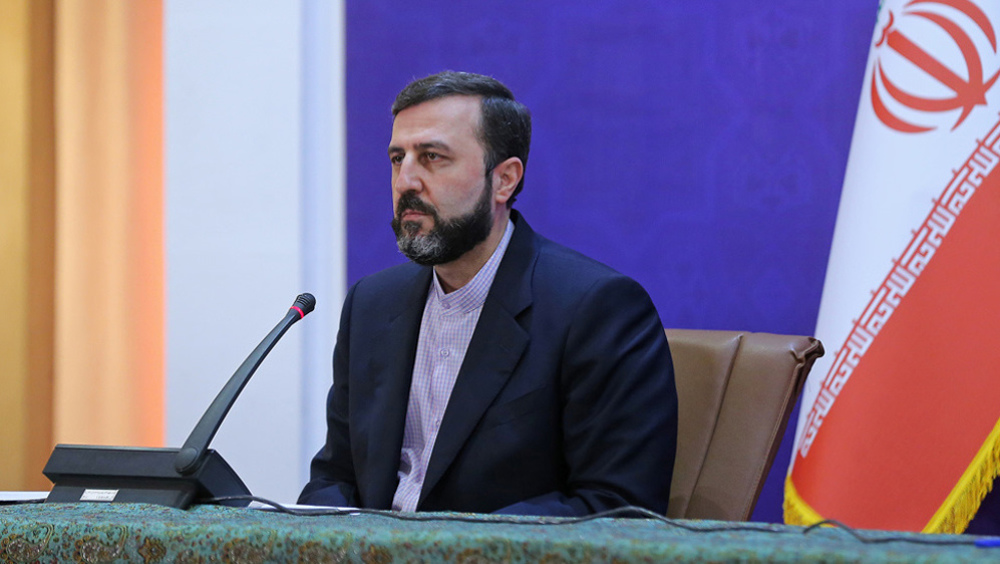Iran urges 'practical measures' to safeguard JCPOA
Iran's Foreign Minister Mohammad Javad Zarif has said that safeguarding the Joint Comprehensive Plan of Action (JCPOA) is a responsibility that demands "practical measures" by the international community.
"Saving the JCPOA is a responsibility of the international community. If the international community considers the JCPOA as an important achievement, it should undertake practical measures to conserve it, just as Iran did," said Zarif after arriving in the Chinese capital of Beijing on Friday.
The Iranian foreign minister stressed that the international community has resorted to "publishing statements and comments instead of taking practical steps" to safeguard the JCPOA.
"It is quite clear what we mean by practical steps; the normalization of Iran's economic relations. This is clearly mentioned in the JCPOA," he added.
‘China resolutely opposes US sanctions on Iran’
Zarif met with Chinese Foreign Minister Wang Yi to discuss bilateral relations and recent developments regarding Iran and the Middle East region later on Friday.
The top Chinese diplomat told Zarif that China resolutely opposes the US’ unilateral sanctions.
"China resolutely opposes the U.S. implementation of unilateral sanctions and so-called 'long arm jurisdiction', understands the current situation and concerns of the Iranian side, and supports the Iranian side to safeguard its legitimate rights and interests," China's Foreign Ministry quoted Wang as saying.
"The dispute surrounding the Iranian nuclear agreement is essentially a contest between multilateralism and unilateralism," he said.

Speaking earlier on Thursday, Zarif said China was one of Iran's most important economic and political partners that was also among the remaining signatories of the JCPOA, adding that Iran sought "close negotiations" with the country, especially regarding "recent developments."
"If the international community and other JCPOA member countries and our friends in the JCPOA like China and Russia want to keep this achievement, it is required that they make sure the Iranian people enjoy the benefits of the JCPOA with concrete actions," Zarif added.
China is among Iran's main global oil clients that was allowed to import Iranian crude oil before the US ended waivers in early May.
Zarif made the statements following visits to Turkmenistan, India and Japan in the past week.
In final 2 days of Asia tour—Turkmenistan, India, China & Japan—fruitful discussions w/ FM Kono & PM Abe in Tokyo, & FM Wang Yi in Beijing. Int'l community, #JCPOA members, & our partners must step up efforts to restore stability & save JCPOA through concrete economic measures. pic.twitter.com/pXwFZb9h7s
— Javad Zarif (@JZarif) May 17, 2019
The foreign minister has made the trips as the US has been ratcheting up a policy of “maximum pressure” against Iran under President Donald Trump.
Employing the policy, Washington left the multilateral nuclear deal, reached between Iran and the six major powers -- the US, Britain, France, Russia, China, and Germany -- last year.
It then reinstated the sanctions that had been lifted under the accord, and began threatening the countries not abiding by the bans with “secondary sanctions.”
The US announced last month that it would not renew waivers that allowed Tehran’s eight largest customers to purchase its oil. The exemptions expired on May 1.
Countries affected by US sanctions have so far opposed the expected move, citing tight market conditions and high fuel prices that are harming oil-dependent industries.
Yemeni armed forces down F-18 fighter jet, repel US-UK attack: Spokesman
Iran warns against US-Israeli plot to weaken Muslims, dominate region
VIDEO | Public uproar in US against Israeli regime
‘Ghost town’: 70% of Jabalia buildings destroyed by Israel
Mother’s Day: Sareh Javanmardi’s inspiring journey as Paralympic champion and mother
Russia downs over 40 Ukrainian drones as Putin vows 'destruction' on Kiev
VIDEO | Yemen: A bone in Israeli neck
D-8’s role in Iran’s economy after Cairo summit














 This makes it easy to access the Press TV website
This makes it easy to access the Press TV website